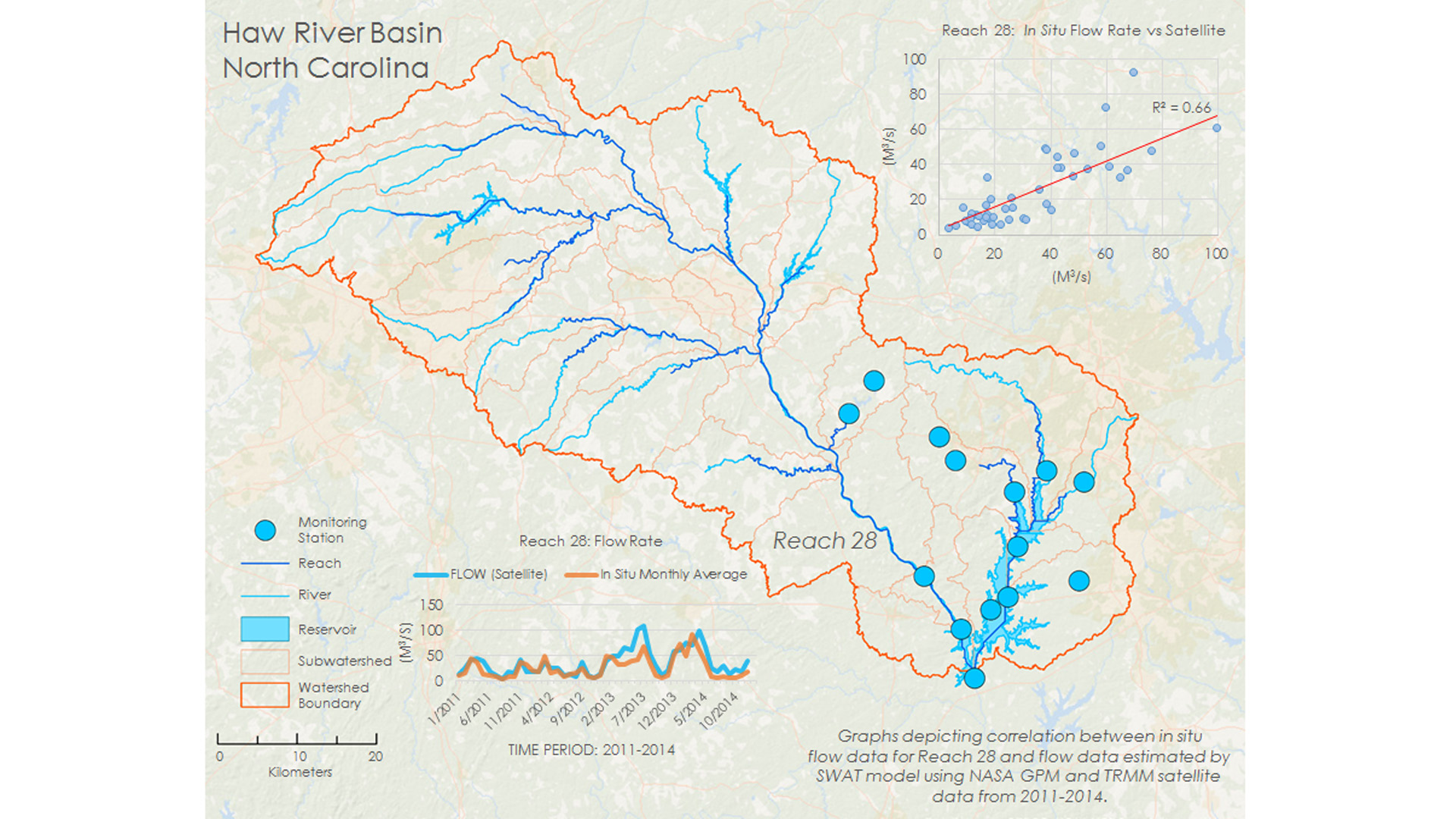North Carolina Water Resources

Utilizing NASA Earth Observations and Hydrological Modeling to Monitor Nutrient Levels in Jordan Lake, North Carolina for Improved Water Quality Management
B. Everett Jordan Lake reservoir, located in Chatham County, North Carolina, provides drinking water for approximately 250,000 people in the state. Since 1974, the same year construction of the reservoir was completed, excessive nutrient levels from wastewater treatment plants and agricultural runoff has led to eutrophic and hyper-eutrophic conditions in the reservoir. As a result, the lake was determined to have Nutrient-Sensitive Waters (NSW) and declared "impaired" by the North Carolina Environmental Management Commission. The Jordan Lake Nutrient Management Strategy was established to improve water quality. Monitoring of water quality is performed by the United States Geologic Survey (USGS) at six sampling sites on a bi-monthly basis in order to guide management and policy decisions. However, more frequent data collection would allow regulators to better understand how nutrient levels and management policies affect the lake. A GIS-based tool was developed to monitor nitrogen and phosphorus levels in Jordan Lake using Global Precipitation Measurement (GPM) satellite data, ancillary data sources, and in situ data, at a weekly latency. The Soil & Water Assessment Tool (SWAT) was calibrated and validated for Jordan Lake using ArcSWAT, and an operational tool was provided to project partners. This project is the first to model water quality using Earth observations in conjunction with the SWAT model within the reservoir and provides near-real time monitoring of nutrient levels for improved water management.
Project Video:
Taking a SWAT at Eutrophication: Modeling Water Quality in Jordan Lake, NC
- Location
- NASA Goddard Space Flight Center
- Term
- Fall 2016
- Partner(s)
- Hazen and Sawyer P.C.
University of Guelph - NASA Earth Observations
- GPM, IMERG
TRMM, TMPA - Team
- Tammy Ashraf (Project Lead)
Elisa Ahern
Jessica Fayne
John Fitz
Sara Lubkin
Sean McCartney - Advisor(s)
- Dr. Amita Mehta, UMBC, NASA
Dr. Prasad Daggupati, University of Guelph